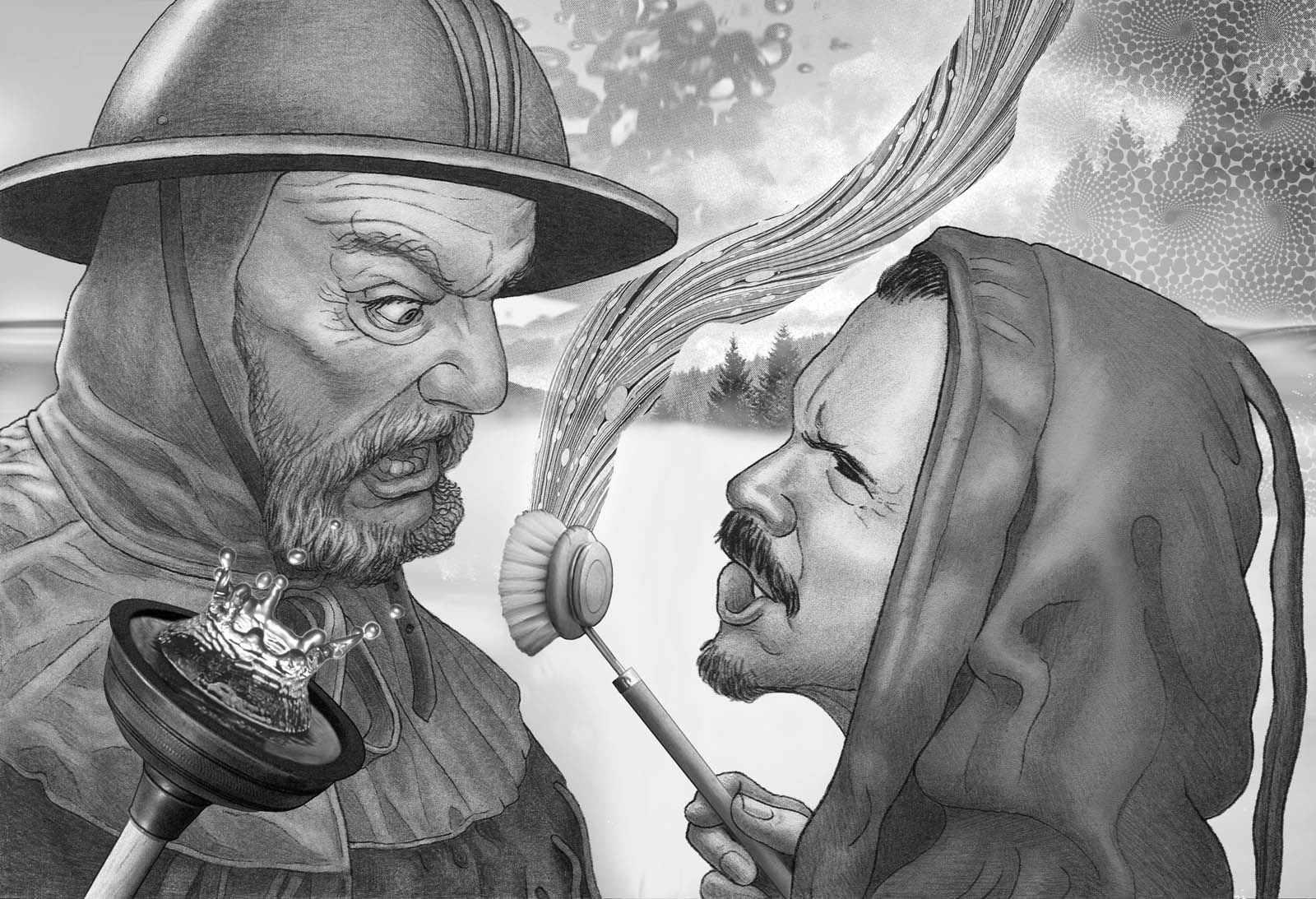When Tom Bradley was a little boy he was given a gazetteer for Christmas. As little boys will, he looked up all the places in the world that start with the F-word. There were two, Fukien in China and Fukuoka in Japan. Little did he suspect that he would one day be exiled to both.
Tom is a former lounge harpist. During his pre-exilic period, he played his own transcriptions of Bach and Debussy in a Salt Lake City synagogue that had been transformed into a pricey watering hole by a nephew of the Shah of Iran.
He taught anglophone literature to Chinese graduate students in the years leading up to the Tiananmen Square massacre. He was politely invited to leave China after burning a batch of student essays about the democracy movement rather than surrendering them to “the leaders.”
Tom wound up teaching conversational skills to freshman dentistry majors in the Japanese “imperial university” where they used to vivisect our bomber pilots and serve their livers raw at festive banquets. But his writing somehow sustains him.
Tom’s latest books are Family Romance, a novel illustrated by Nick Patterson (Jaded Ibis Press), A Pleasure Jaunt With One of the Sex Workers Who Don’t Exist in the People’s Republic of China (Neopoiesis Press), Bomb Baby (Enigmatic Ink), Vital Fluid (Crossing Chaos), Even the Dog Won’t Touch Me (Ahadada Press), Hemorrhaging Slave of an Obese Eunuch (Dog Horn Publishing), My Hands Were Clean (Unlikely Books) and Put It Down in a Book (The Drill Press), which was named 3:AM Magazine’s Non-Fiction Book of the Year. Further curiosity can be indulged at http://tombradley.org.
Reviews and blurbs:
Tom Bradley is one of the most exasperating, offensive, pleasurable, and brilliant writers I know. I recommend his work to anyone with spiritual fortitude and a taste for something so strange that it might well be genius.
— Denis Dutton, Arts & Letters Daily
I tell you that Dr. Bradley has devoted his existence to writing because he intends for every center of consciousness, everywhere, in all planes and conditions (not just terrestrial female Homo sapiens in breeding prime), to love him forever, starting as soon as possible, though he’s prepared to wait thousands of centuries after he’s dead.
— Cye Johan, Exquisite Corpse
The contemporaries of Michelangelo found it useful to employ the term “terribilita” to characterize some of the expressions of his genius, and I will quote it here to sum up the shocking impact of this work as a whole. I read it in a state of fascination, admiration, awe, anxiety, and outrage.
— R.V. Cassill, editor of The Norton Anthology of Fiction
